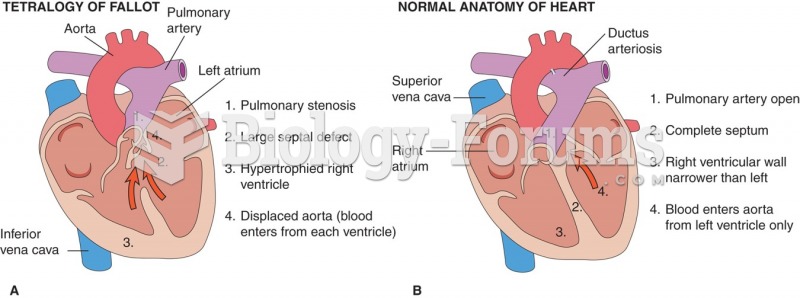|
|
|
Drugs are in development that may cure asthma and hay fever once and for all. They target leukotrienes, which are known to cause tightening of the air passages in the lungs and increase mucus productions in nasal passages.
Eat fiber! A diet high in fiber can help lower cholesterol levels by as much as 10%.
The Centers for Disease Control and Prevention (CDC) was originally known as the Communicable Disease Center, which was formed to fight malaria. It was originally headquartered in Atlanta, Georgia, since the Southern states faced the worst threat from malaria.
Of the estimated 2 million heroin users in the United States, 600,000–800,000 are considered hardcore addicts. Heroin addiction is considered to be one of the hardest addictions to recover from.
In the United States, an estimated 50 million unnecessary antibiotics are prescribed for viral respiratory infections.
 Osteoporosis. (a) A section through normal spongy bone. (b) A section through a bone with osteoporos
Osteoporosis. (a) A section through normal spongy bone. (b) A section through a bone with osteoporos
 EEG recordings showing the differences between normal, absence seizure, and generalized tonic–clonic
EEG recordings showing the differences between normal, absence seizure, and generalized tonic–clonic





